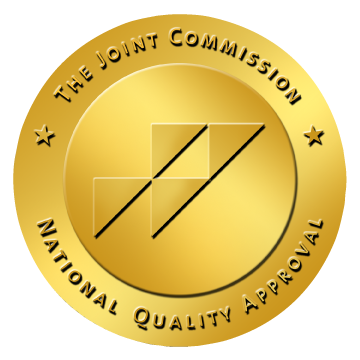While most people experience occasional feelings of anxiety or depression, untreated chronic depression or an anxiety disorder can have severe consequences, including suicide. According to the Centers for Disease Control and Prevention (CDC), almost twelve percent of those aged 18 and over experience ongoing anxiety, and nearly five percent experience persistent feelings of depression.
Having one disorder is challenging, and having both is especially difficult. Research finds generalized anxiety disorder (GAD) and major depressive disorder (MDD) often co-occur. Because symptoms like insomnia, feeling anxious, difficulty concentrating, and other similar symptoms may be present in either disorder, it can be difficult for doctors to identify the presence of both.
Although symptoms of each disorder may overlap, people with chronic depression often report a persistent low, sad, or hopeless mood. Those with anxiety may feel an ongoing sense of worry, nervousness, and fear.
Mental health professionals find those with persistent anxiety may:
Anxiety may also affect a person’s ability to concentrate or sleep well, raise their heart rate and blood pressure to unhealthy levels, trigger a panic attack, and cause gastrointestinal and other physical distress.
People with chronic depression may:
As with anxiety, those with depression may have difficulty concentrating and experience disrupted sleep patterns. People struggling with depression may also experience low energy, an unusually high or low appetite, and physical pain without a known cause.
Suicide is one of the most significant risks of untreated anxiety or depression. People struggling with anxiety, depression, or both are at a greater risk of suicidal thoughts or actions. Statistics compiled by the National Alliance on Mental Health (NAMI) are sobering:
A 2018 study found, “Depression and substance use disorders, mostly alcohol, are the most prevalent diagnoses among suicide victims.” Multiple studies found similar results.
Note: If you are considering or believe a loved one is considering suicide, immediately contact 911 or the National Suicide Prevention Lifeline at 800-273-8255. Trained staff is available 24/7.
A person may experience anxiety, depression, both, or have another co-occurring mental disorder, like substance abuse or an eating disorder. A professional treatment plan must address all co-occurring conditions for the best chance of long-term recovery.
Besides an increased risk of suicide, untreated anxiety and depression can contribute to other serious issues, including substance abuse, eating disorders, physical illness, damaged relationships, and difficulty meeting work, school, or personal responsibilities.
Those with depression or anxiety may attempt to reduce emotional and physical pain by “self-medicating” with alcohol or drugs. While they may achieve temporary relief, continued abuse of addictive substances worsens symptoms of anxiety and depression and increases the risk for self-harm.
The National Eating Disorder Association (NEDA) advises, “Anxiety, depression, and obsessive-compulsive disorder (OCD) are just a few additional mental health diagnoses that frequently co-occur with eating disorders.” One disorder may precede or follow the other, but struggling with both makes treatment more challenging.
Multiple studies have found the risk of chronic physical conditions increases for people struggling with anxiety and depression. Chronic stress, most associated with anxiety, appears to directly correlate with a higher incidence of arthritis, COPD, heart disease, and hypertension.
One noted longitudinal study found a strong correlation between depression, coronary heart disease, and sudden cardiac death in the women studied. The study also found a link between anger and hostility and heart disease.
Depression and anxiety are treatable medical conditions. Untreated depression or anxiety causes unnecessary suffering and can be dangerous.
Contact New England Medical Group today to learn how our expert team can help you successfully manage depression, anxiety, or both so you can live your best life.
